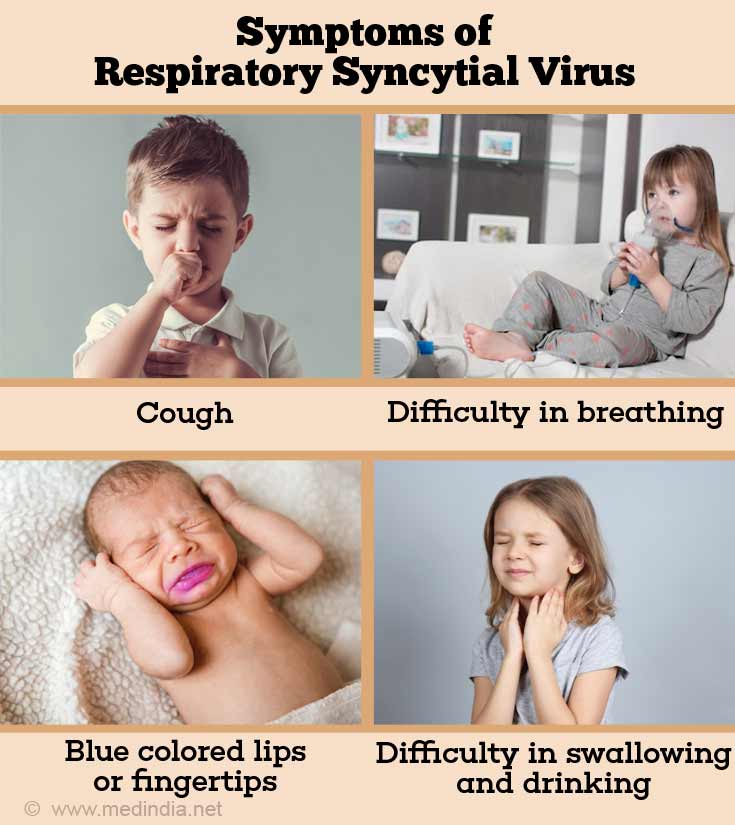What are the Causes of Respiratory Syncytial Virus (RSV)?
- Droplet infection: RSV is highly contagious and is transmitted by secretions from the nose or mouth of an infected person. The virus spreads through tiny droplets in the air when an infected person coughs or sneezes
- Babies may get infected when older kids carry the virus home from school and pass it to them or from an infected adult or family member
- Crowded schools, households and childcare centers
- Contaminated tabletops, tissues, doorknobs and other hard surfaces. Touching these surfaces and then rubbing your hands against your eyes or nose may result in RSV infection. RSV can live for upto five hours on the doorknobs and hands.
What are the Symptoms & Signs of Respiratory Syncytial Virus (RSV)?
- Watery discharge from nose
- Sneezing
- Cough
- Difficulty in breathing
- Rapid breathing
- High fever
- Wheezing
- Blue colored lips or fingertips (cyanosis)
- Poor appetite and feeding
- Difficulty in swallowing and drinking

Emergency Symptoms: Immediate attention - When to call the Doctor?
Contact your doctor immediately when:
- High fever
- Child cries continuously
- Appears unusually very tired or inactive
- Age is less than three months or is a premature infant
- Has difficulty in breathing
- Breathing very rapidly
- Refuses to feed
- Has mouth dryness, urinating less often, dry cool skin or is crying without tears.





